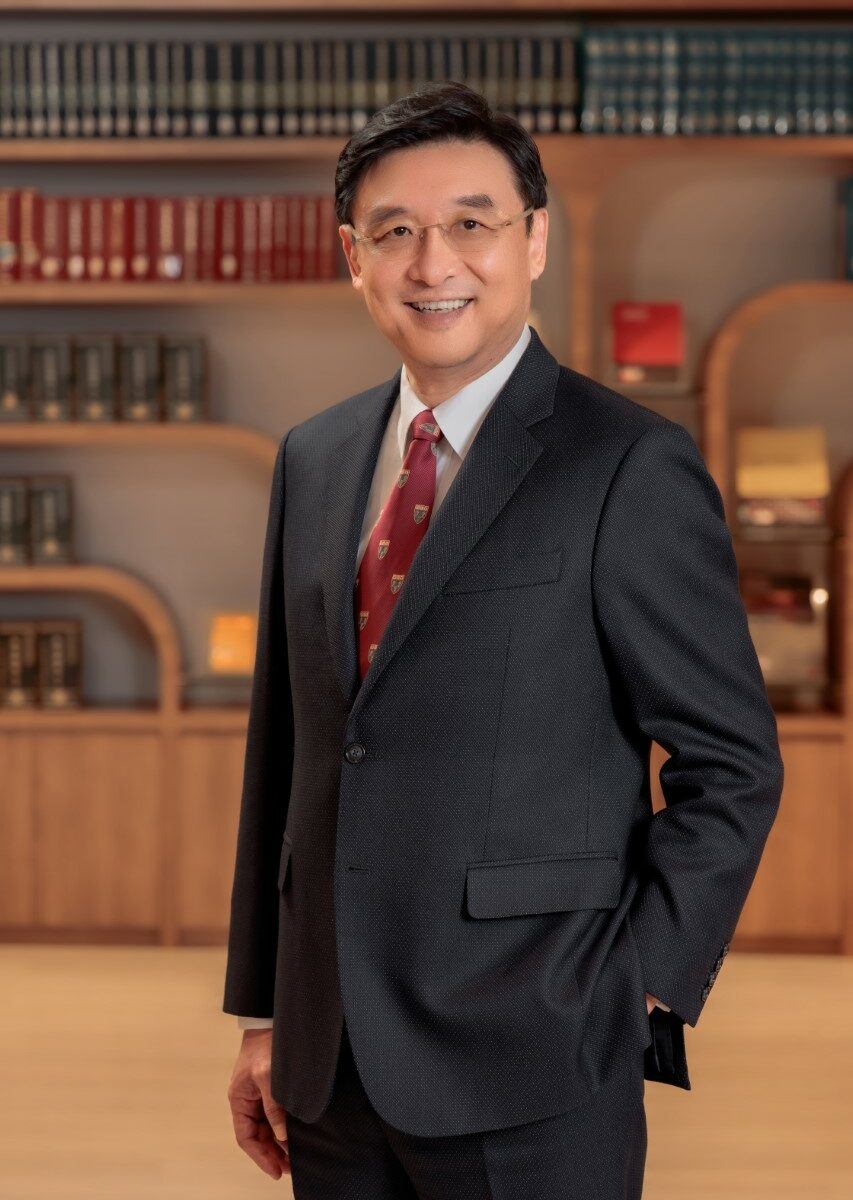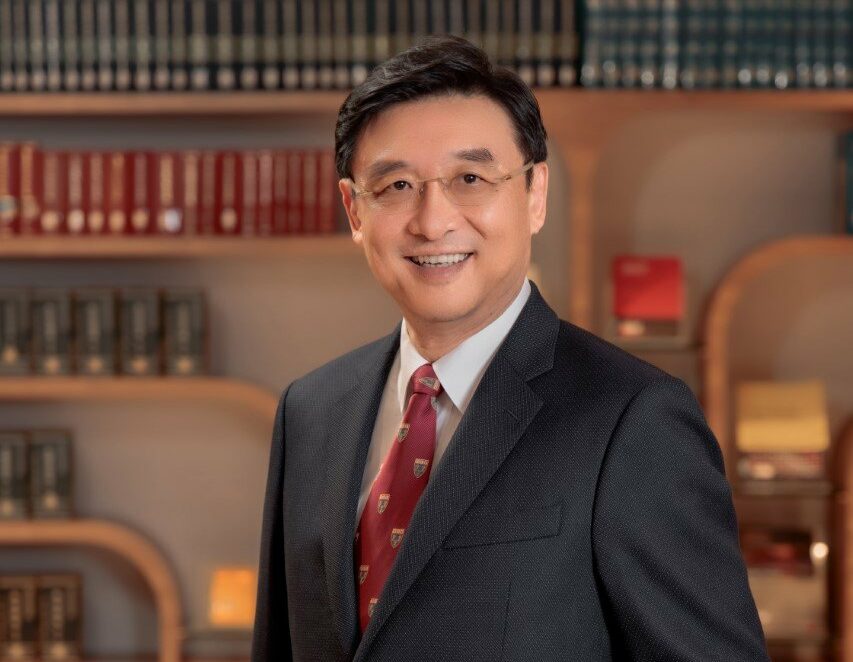How has your role / involvement in client facing work changed since becoming managing partner/setting up your firm?
Being the Managing Partner of Lee and Li is a tremendous responsibility. He or she is responsible for the sustainable operations of the firm. I assumed the position with great humility because I feel the weight of the firm’s long history, our commitment to our employees’ welfare, and the trust that our clients continue to place in us. Without a doubt, Lee and Li’s capital comes directly from our employees and the clients’ trust. Listening to their needs and feedback on our operations and services is vital to our longevity.
In more concrete terms, my key concerns are driving business growth and setting and achieving strategic goals. We will strive to do that while adhering to the firm’s core values: “We Care, We Serve, We Excel.”
What are the biggest challenges facing firms in Asia Pacific and specifically the market in which you operate in?
The China–U.S. relationship exerts gravitational influence in the Asia Pacific region. The rivalry between the two countries is expected to have a polarizing effect globally, forcing investors and businesses to take sides. And whether the incoming Biden administration will have a stabilizing effect and bridge differences in the international spheres remains to be observed. In these times of change, clients operating in Asia are looking for clarity and experience, and Lee and Li is perfectly positioned and qualified to contribute to their operations.
Furthermore, with the proliferation of online communication tools, including social media, clients now expect a shorter turnaround time. To stay responsive, we are tapping into an arsenal of new tools, including artificial intelligence, to enhance our work.
The global pandemic has clearly changed the way in which organizations tend to operate. What impact has this had on your clients and your approach to advising clients?
Taiwan is one of the handful of countries that have contained the spread of the coronavirus. As a result, we have not experienced the lockdowns or severe business interruptions that are observed elsewhere in the world.
Still, during the peak of the limited outbreak in Taiwan, we discouraged in-person meetings and moved to videoconferencing to interact with clients. We further mandated a strict mask-wearing policy both for ourselves and visiting guests in our office building. Also, we had the foresight to have developed the IT infrastructure over the years that now allows us to work from home (as drills for potential lockdowns) and continue serving clients sans interruption. We are proud to say that clients have felt practically no difference in our service delivery before and during the pandemic. We are fully equipped to interface with our clients by videoconferencing, which is becoming the new normal.
What do you do differently from other firms? What do you think separates you from your competitors?
Lee and Li is the largest law firm in Taiwan and is renowned for its unparalleled legal expertise and unwavering dedication to clients. We are regularly recognized as a first-tier law firm by international institutions and have earned accolades from clients.
Our clients come from a wide range of industries, each with unique needs and intricate issues. The Lee and Li Practice Groups were conceived to leverage the considerable resources of a full-service firm to act like a boutique firm, giving each client the necessary attention and specialized consultation. Our Practice Groups include, among others, M&A, corporate/investment, tax, labor, competition laws, telecommunications/media, banking/capital market, personal data protection, dispute resolution, and patent/technology.
We are especially proud of the proprietary online database established by our Knowledge Management Division in 1980. It houses various types of legal documents and legal advice representing over 50 years’ worth of materials while keeping clients anonymous. It is a precious learning resource as our attorneys can access it quickly to familiarize themselves with an existing client, a previous matter or a given issue. Among the law firms in Taiwan, we may very well have the largest in-house knowledge management team.
Continued education and on-the-job training are vital to boosting individual growth and propelling us into the new decade in an environment of intense competition. Training sessions, both routine and ad hoc, are offered to our associates. They help our people stay current on industry developments and enhance our ability to identify and manage risks associated with clients’ business activities. We also provide workshops and seminars for our clients to impart the latest regulatory changes and risk-assessment skills.
We are as equally dedicated to the rights of the underprivileged and the evolution of Taiwan’s legal system as we are to our clients’ interests. A portion of our revenue is earmarked annually to support our pro bono services and public interest initiatives. Through the Lee and Li Foundation, we hold collegiate moot court competitions on both sides of the Taiwan Strait, carry out Project Citizen on university campuses in Taiwan, offer scholarships to law school students, and host seminars in cooperation with various academic institutions.
Are clients looking for stability and strategic direction from their law firms – where do you see the firm in three years’ time?
We plan for the long term, beyond the next three years. Not seeing far enough into the future could cost us the edge we have over our competitors.
The one constant in business is change, and that change today is accelerated by technological innovations, trade wars, the current pandemic, and regulatory pressures. Adding to that the ever-increasing complexity of deals, and you have a high level of anxiety in the boardrooms. Clients these days want one-stop shopping, and we are ready for that. Take the fastest-growing renewable energy market for example. As the Taiwan government is abandoning nuclear power for renewable energy by offering attractive feed-in tariffs so as to reach the goal of having 20% renewable energy by 2025, it has introduced various measures to attract investment in green energy, mainly onshore/offshore wind farms and solar power systems. Being the pioneer in virtually all new areas of legal practice, we are able to seize the lead in advising on this industry, providing urgently needed services to many international and domestic developers and investors.
Meanwhile, we are readying ourselves to capitalize on opportunities and advances foreseeable from the Internet of Things, including block chain technologies, artificial intelligence and fifth generation mobile network, all of which are expected to reshape the current business models. In fact, we have already immersed ourselves in these emerging tech issues and stand ready to grow with start-up clients.
It is already a cliché to say that AI will revolutionize the way we live, work, and play. But it is true. We are assessing how to utilize AI to enhance our legal services and our delivery of them. In particular, we are fast-tracking the integration of LegalTech and the existing legal service model to better serve our clients.
That is the technical aspect of our work. In terms of human resources, we are hiring professionals from a broad spectrum of specialties. Clients want far more than legal services nowadays. They are also looking for direction to boost their bottom line. To this end, we actively recruit talent from multiple areas of expertise. Moreover, we are busy building a team to provide risk management consultancy in response to the growing need of legal compliance. I predict that this platform, which is slated to go online soon, will be in high demand when it is ultimately unveiled.
As disruptive as the COVID-19 pandemic are the changes in Hong Kong and the China–U.S. dynamic. However, we do not believe the worldwide propagation of the rule of law will be curbed, which brings the rule of law in Asia to the forefront for us. With our professionalism and faith in the rule of law, we will continue to guide our clients through the uncertainties and tumult.

